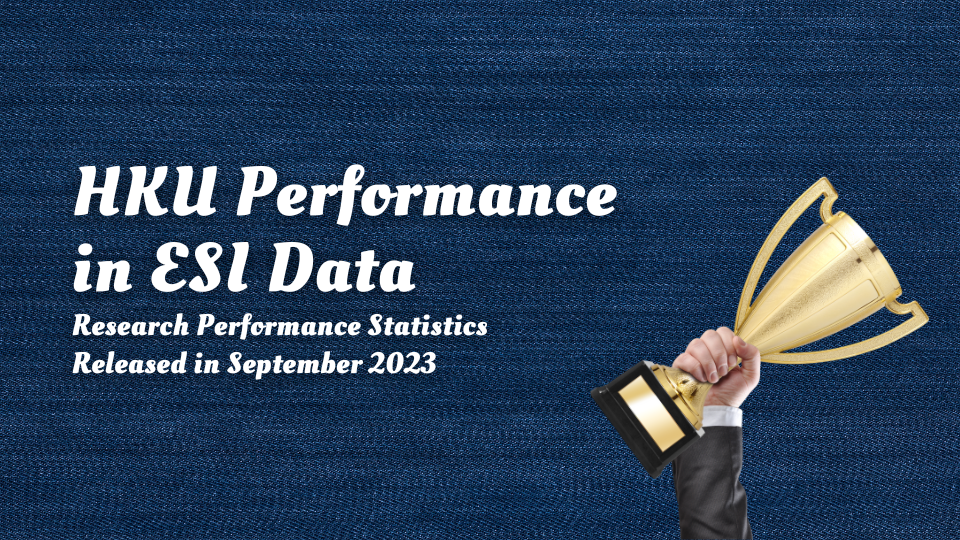Tag: bibliometrics and research impact

In the Front of Research: Newly Emerged Topics for 2024 and HKU Contributions
— by Vivian Qiu 1. Introduction 1) Research fronts A research front can be conceptualized as the convergence of scientific discoveries and societal interests, with new findings leading to further discoveries [1]. Understanding research fronts can help researchers identify key areas for future exploration, thereby enhance the capability of researchers to contribute meaningfully to their disciplines and…
Read More
Research Impact beyond the Academia 2: Policy Citations
— by Chloe Ng In the previous post, we discussed the use of patent citations as alternative metrics to measure research impact beyond academia. In this post, we will focus on policy citations, which try to showcase the impact of research on policy, law and regulation. Policy Metrics Policy documents refer to documents prepared by…
Read More
Research Impact beyond the Academia 1: Patent Citations
— by Chloe Ng Introduction Citation metrics, which measure the number of citations a publication receives from other scholarly publications, are commonly used as indicators of research performance. However, these metrics often fall short in capturing the broader societal impacts of research. This blog post explores alternative indicators of impact, providing insights from patent citations…
Read More
Unmasking and Combating Publishing Malpractices 2: Citation Manipulation
— by Fanny Liu In the previous post (Unmasking and Combating Publishing Malpractices 1: Paper Mills), we discussed publishing malpractices focusing on the issue of paper mills. While traditional fraud and misconduct continue to exist, “post-production” manipulations, i.e., manipulations regarding the publication process and the impact, rather than the content of the publication, come into…
Read More
A Comparative Approach to Explore HKU Publication Trends Using Data from OpenAlex and Peer Databases
— by Vivian Qiu, Florence Ng The accelerating adoption of open science practices has driven the emergence of digital tools or platforms that enable openness in research. These tools greatly enhanced the accessibility and transparency of scholarly publications and relevant data. In our previous blog post released in 2022, we introduced OpenAlex, an open catalog…
Read More
Top HKU Researchers in Research.com Rankings 2024
— by Yijing He, Zesen Gao, Florence Ng The University of Hong Kong (HKU) takes pride in its distinguished scholars and researchers who excel across various fields of expertise. In our previous blog post, we reported a brief analysis on how HKU researchers were named in 2022 on an educational platform Research.com. This year, Research.com…
Read More
Presenting Research Impact: Metrics, Misuse, and Movement
— by Fanny Liu Introduction Research metrics are quantitative measurements designed to evaluate research outputs and impacts (Wilsdon, 2015). They consist of different measures and statistical methods for assessing the quality and impact of research. Traditionally, research metrics (bibliometrics) focuses on the quantitative analysis of research outputs, most commonly scholarly publications. The most extensively utilized…
Read More
HKU Performance in ESI data – Research Performance Statistics Released in September 2023
— by Vivian Qiu 1. Introduction to ESI data Essential Science Indicators (ESI) data are statistical data that help identifying top-performing research and emerging areas of research in science and social sciences based on the Web of Science Core Collection data. ESI surveys more than 11,000 journals across 22 broad disciplines (Essential Science Indicators Help,…
Read More
Beyond citations — Demonstrate your research impact with alternative metrics
— by Fanny Liu Introduction to Altmetrics Alternative metrics (also known as altmetrics) indicate the attention of scientific outputs which are shared, mentioned, and discussed in online environments, which are derived from users’ actions on various social media platforms and other online sources (e.g., Wikipedia) [1]. Altmetric.com is a platform to find altmetrics for research…
Read More
Towards a Framework to Measure Open Science Practices – PLOS Open Science Indicators
— by Fanny Liu Open Science is “transparent and accessible knowledge that is shared and developed through collaborative networks” (Vicente-Saez & Martinez-Fuentes, 2018, p. 434). It encompasses emerging trends such as open code, open data, open access, and more. PLOS (Public Library of Science) is a non-profit, open access publisher in science and medicine, and…
Read More